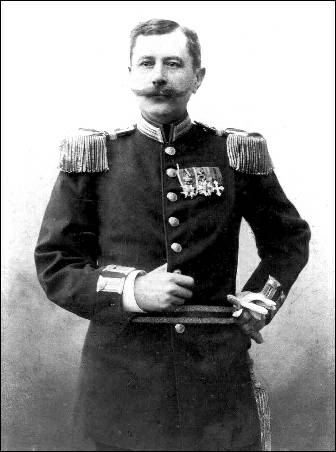Inventor of solid propellant rocket fuels.
Wilhelm Theodor Unge was born in Stockholm, Sweden in 1845. He began his military career in 1866, following graduation from college as an engineer. He soon became interested in military technology, and after his first invention (a telemeter, in 1887) he patented several improvements for an automatic rifle.
Unge then turned his interests to artillery, hoping to use rocketry as a method of improving artillery. His early work in rocketry was similar to that of Konstantin Tsiolkovsky in Russia and was about ten years before Robert H. Goddard in the United States. Like them, he received little or no government support in his research.
After 1850, the use of war rockets had declined due to advances in artillery, which became far more accurate at greater distances than either Hale or Congreve rockets. Alfred Nobel, another Swede, began pursuing improvements in Hale rockets in conjunction with Theodor Unge in 1892. They were particularly interested in using rockets as both aerial torpedoes and as ground-launched weapons. Patents on improved rockets soon followed as Unge developed new propellants and methods of control.
Unge tried to increase the range of Hale rockets by using a cannon-launch for initial first-stage velocity. Although his attempts were unsuccessful, his theory was sound and cannon-launched, guided-projectile systems were proven in practice almost a century later. Unge also modified Nobel’s new double-based smokeless gunpowder into a solid rocket propellant that had controlled burning, higher exhaust velocity, and a stabilizer, to improve storage life.
Although a rocket using this propellant was flown in 1896, Alfred Nobel died that same year, and Unge’s research soon ended without Nobel’s financial support. Unge next researched air-to-ground rockets and obtained new patents on improved rockets and life-saving rockets, some of which were sold to England, India, Australia, and Greece. His launcher-rotated rockets could travel five miles with great accuracy, in part due to his superior solid propellants.
Unge hoped to use his rockets for surface-to-air, ship-to-ship, and ship-to-shore firings. However, he could not persuade the government of Sweden to fund his research. Unable to continue without funding, he sold his rocket patents to Friedrich Krupp of Germany in 1908.
Lieutenant Colonel Wilhelm Theodor von Unge died in 1915.

